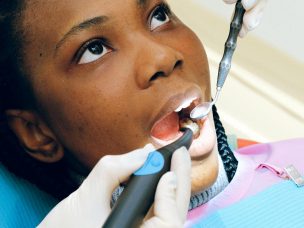Vitiligo increases the risk for thyroid disease, especially in women. These autoimmune disorders should be integrated into the decision-making process around screening for diseases.
- Autoimmune thyroid disease is more common in people with vitiligo.
- Women are more likely to have both vitiligo and a thyroid disorder.
- Vitiligo should be considered a risk factor for other pathologies, including thyroid dysfunction.
Co-Occurrence of Vitiligo and Thyroid Disorders Is More Common in Women
Vitiligo can increase the risk for other autoimmune diseases, including thyroid disorders. Like vitiligo, thyroid dysfunction significantly reduces quality of life, and coexisting conditions can affect treatment plans for patients. Therefore, it is important to understand the relationship between vitiligo and other seemingly unrelated diseases.
Over the past 10 years, a limited number of studies have investigated the incidence of vitiligo with autoimmune thyroid diseases like Hashimoto’s and Graves’ disease. Compared to the general population, autoimmune thyroiditis is more common in people with vitiligo, and women with vitiligo are the most at risk for also having thyroid disease.
A Positive Association May Exist Between Thyroid Pathologies and Acral Vitiligo
According to a systematic review published in the Journal of Personalized Medicine, individuals who had underlying thyroid conditions were more likely to develop acral vitiligo and experience depigmentation of the wrists. In addition, when vitiligo patients had coexisting autoimmune or inflammatory diseases, only autoimmune thyroid conditions exhibited a specific distribution pattern. The link between thyroid dysfunction and depigmentation of the hands was so significant that the absence of depigmented macules on the hands could potentially rule out the presence of an autoimmune thyroid condition.
High Levels of Anti-Thyroid Antibodies Were Positively Associated With Vitiligo Severity
Screening for anti-thyroid antibodies can help clinicians diagnose thyroiditis early in the disease. Screening for thyroid disorders is especially recommended for older individuals with a family history of thyroid problems. Patients with higher levels of anti-thyroid antibodies and vitiligo more often had extensive vitiligo lesions, longer disease course, and were more likely to be women. Patients who underwent early screening and treatment of the underlying thyroid condition had better outcomes and prognoses compared to those who were not screened and presented to the doctor with a clinically manifested condition.
The co-occurrence of vitiligo with thyroid disorders is still not well understood, except for the increased risk when a patient has at least one autoimmune disease. The biological basis of this relationship should be further studied. With the present knowledge, patients with vitiligo, particularly women, should be screened for thyroid disorders to improve their prognoses and outcomes.
Source:
Chivu, A. M., Bălășescu, E., Pandia, L. D., Nedelcu, R. I., Brînzea, A., Turcu, G., Antohe, M., & Ion, D. A. (2022). Vitiligo-Thyroid Disease Association: When, in Whom, and Why Should It Be Suspected? A Systematic Review. J Pers Med, 12(12). https://doi.org/10.3390/jpm12122048










